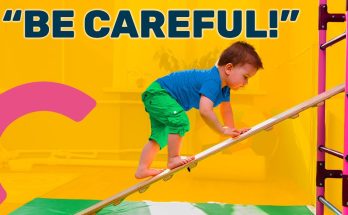Parenting is a learning journey, and new parents often rely on instincts, advice, and trial-and-error to navigate the early years. While every child develops at their own pace, certain mistakes can hinder their progress and contribute to developmental delays. Being aware of these pitfalls can help parents create an environment that fosters healthy growth and development. Here are some common mistakes new parents make that can lead to developmental delays and how to avoid them.
1. Insufficient Tummy Time
Tummy time is essential for strengthening a baby’s neck, shoulders, and core muscles. Many parents avoid placing their baby on their tummy due to concerns about discomfort or because their baby dislikes it. However, skipping tummy time can lead to delays in rolling over, sitting up, and crawling.
How to Avoid It:
- Start with short sessions, a few minutes at a time, and gradually increase.
- Engage your baby with toys, mirrors, or your own face to make it more enjoyable.
- Place them on a firm surface and always supervise to ensure safety.
2. Overusing Baby Equipment
Swings, bouncers, and walkers may seem convenient, but excessive use can limit a baby’s opportunities to develop motor skills naturally. Babies need floor time to explore, reach, and learn how to move on their own.
How to Avoid It:
- Use baby gear in moderation—no more than 15-20 minutes at a time.
- Allow plenty of free movement on a safe play mat or floor area.
- Encourage natural movement by letting your baby practice sitting, rolling, and crawling.
3. Delayed Social Interaction
Babies learn communication and social skills through face-to-face interaction. If parents rely too much on screen time or do not engage with their baby through talking, singing, and playing, it can slow language and social development.
How to Avoid It:
- Talk to your baby throughout the day, describing your actions and surroundings.
- Respond to their coos and babbling to encourage language development.
- Arrange playdates or spend time in social environments where they can observe and interact with others.
4. Ignoring Sensory Play
Sensory experiences are crucial for brain development, yet some parents may avoid messy play or limit their baby’s exposure to different textures, sounds, and sights. This can slow cognitive and fine motor skill development.
How to Avoid It:
- Provide safe, age-appropriate sensory activities like playing with soft fabrics, water, sand, or finger paints.
- Encourage exploration with toys that offer different textures, colors, and sounds.
- Allow your baby to experience outdoor environments, such as grass, leaves, and fresh air.
5. Lack of Routine and Structure
While newborns have irregular sleep and feeding patterns, as they grow, they benefit from structure. An inconsistent routine can affect a baby’s ability to develop healthy sleep, eating, and learning habits.
How to Avoid It:
- Establish a predictable daily routine for naps, feeding, and playtime.
- Be flexible but consistent to help your baby feel secure.
- Create a bedtime routine that includes calming activities like a bath, story, or lullaby.
6. Skipping Reading and Language Exposure
Some parents may believe that reading to a baby is unnecessary until they understand words. However, early exposure to books, songs, and conversations is vital for language and cognitive development.
How to Avoid It:
- Read to your baby daily, even if they do not understand the words yet.
- Use expressive voices and point to pictures in books.
- Encourage interaction by letting them touch the book or turn pages.
7. Not Encouraging Independence
It is natural to want to help your baby with everything, but constantly intervening can prevent them from developing problem-solving and motor skills.
How to Avoid It:
- Allow your baby to try new things, like grasping objects or self-feeding, even if they struggle at first.
- Give them opportunities to explore and figure out how to manipulate toys and objects.
- Celebrate small milestones and avoid rushing to do things for them.
Final Thoughts
Parenting is a journey filled with learning, and occasional mistakes are inevitable. However, by being aware of these common pitfalls, parents can take proactive steps to support their baby’s development. Providing a nurturing, interactive, and stimulating environment will help ensure that their child reaches developmental milestones on time. If you ever have concerns about your child’s progress, consulting a pediatrician or child development expert can provide guidance and reassurance.



